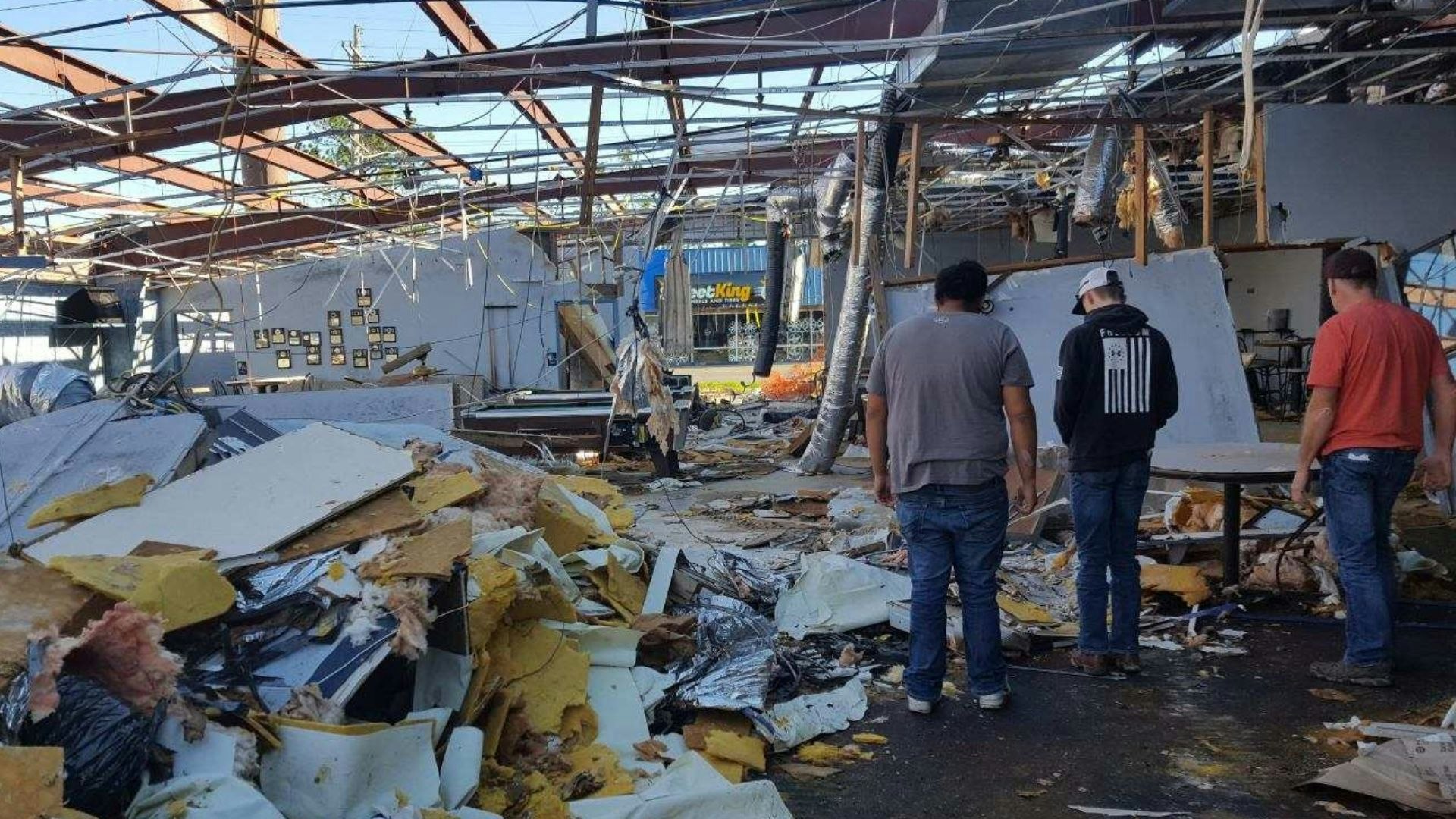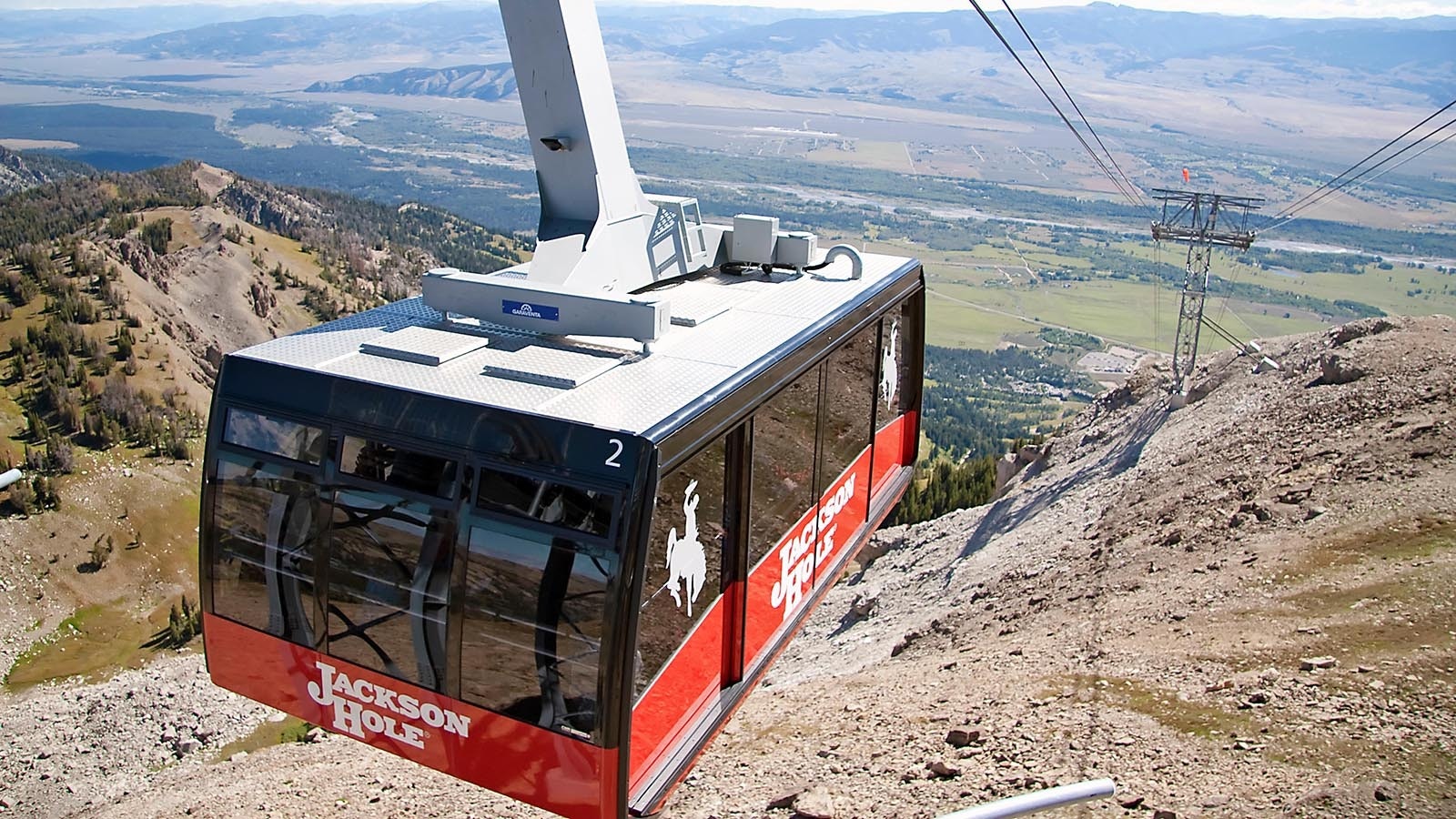When Hurricane Ida blew its way through Louisiana in August 2021, it left behind a path of destruction only exceeded by Hurricane Katrina in 2005.
Bowl South of Louisiana, a family-owned bowling center in Houma, was among the casualties.
Until that day, “that center has never had an ounce of damage,” said Marie Lirette, owner of Bowl South. “And we’ve gone through massive storms here – you know, we’re 65 miles southwest of New Orleans. For Hurricane Katrina, that was our safe place.”
‘The Saddest Thing I’ve Ever Seen’
But the death of one dream saved another.
Like an organ donor, parts of Bowl South have found continued life in another family’s business nearly 2,000 miles away – Hurricane Lanes in Worland, which in 2021 was in need of replacing its wooden bowling lanes.
John Noland, owner of Hurricane Lanes, said his partner Michelle was searching Facebook in an attempt to find an affordable option.
“We were looking and she said, ‘Hey, I found these lanes,’” Noland told Cowboy State Daily. “‘They’re down in Louisiana at a bowling center that was wiped out by the hurricane.’”
Noland, his sons and two friends made the 36-hour drive straight to Houma to disassemble and load the lanes.
“We left Wednesday, at 5 o’clock after work,” said Jay Richard, one of Noland’s lifelong friends. “We drove to Houma, Louisiana, 1,700 miles away, disassembled the bowling lanes, loaded them and went back to work Monday morning.”
But in that whirlwind trip, the five witnessed devastation they will never forget.
“I’d never been to a disaster zone or hurricane relief zone, and it was scary,” said Noland. “There’s no power, there’s no electricity, no plumbing. And the front of the bowling center had no roof, and there was water everywhere.
‘It’s the saddest thing I’ve ever seen.”

Reclaiming the Lanes
Concerned they may have wasted their time and effort making the trip, the Noland crew nevertheless met up with Lirette.
What they found was astonishing.
“The lanes were in phenomenal shape,” said Noland. “It’s like God wanted to save that half or something.”
Lirette herself was amazed that those pieces of her bowling center were still intact.
“The storm, it was like it stopped right before the approaches,” she told Cowboy State Daily. “The lanes, the pinsetters, even though it looked a mess, it was untouched.”
Still, there was a lot of work to be done in a very short span of time.
“The kids and I set up a generator with Jay and started tearing out lanes,” said Noland. “I worked resurfacing before, so I knew what I was doing on the lanes. And we went out there and just went to work.”
Noland’s son Ashton, who was 13 at the time, said he wasn’t prepared for the level of damage done by the hurricane.
“We had to bring generators in to charge the batteries for stuff because there was no power in there,” said Ashton. “It was something I was not ready for.”

Synchronicity
But this story is about so much more than just replacing the lanes of a small community’s bowling alley. It’s about bringing two families together under very unique circumstances – and there also was a lot of synchronicity involved.
Lirette told Noland that her late husband, Terry, had said he would give her a sign when it was time to close Bowl South.
“He said before he passed away that when it was time to quit bowling and quit doing the bowling business, he would send her a sign that it was over,” said Noland.
That sign, Lirette believes, came in the similarities between the Noland family and her own.
“My sisters and my nieces and nephews were always there helping me operate the center,” she said. “And John and his family, it’s like it’s no different. The connection is so similar. It’s like looking in the mirror.”
Norland agrees, saying he noticed similarities as well.
“Her brother that she was very close to growing up, his name was John, as well as mine,” said Noland. “And then she started talking about siblings that she had, and her siblings names match all four of us kids, my siblings.”
Even the name of the Worland business – Hurricane Lanes – which had been determined in 1992 when Noland bought the property, seemed to foreshadow the connection.
“We went down to Deadwood and I hit this slot machine and it was a hurricane slot machine,” said Noland. “So I thought, ‘Well, hell, I’ll call it Hurricane Lanes.’”
Lirette felt the connection almost immediately.
“I’ll never forget, I was in shock, honestly, when he told me the name of his center,” said Lirette. “I thought they were joking at first. I’m like, ‘Hurricane Lanes? Are you … What?’ We’re talking about synchronicity, divine order, all of it.”
Extended Bowling Family
Noland, who himself has been bowling at what is now Hurricane Lanes since he was 12, has passed his love for bowling on to his son, Ashton, who bowled consistent strikes and spares before being interviewed for this story.
Michelle Dorman, Ashton’s mom and Hurricane Lanes co-owner, said Ashton has grown up at the bowling alley and legitimately bowling since he was a toddler.
“He bowled his first state tournament when he was 2 years old,” said Dorman. “He’s the youngest bowler to ever bowl a state tournament in Wyoming.”
Ashton said he’s sometimes teased by friends because he spends so much time at Hurricane Lanes.
“It’s like my second home,” he said. “It’s something that’s always been in my life, and I couldn’t imagine what it’d be like if it wasn’t here.”

Changing Lives
For Richard, the trip was a life-changing event.
“I think about it every day,” he said. “And I hope that they’re able to rebuild and go on with their lives, because the devastation was unbelievable.
“But to see the similarities of the people there, and the ones that I know here, it’s the same thing in two different universes – they just parallel so much.”
For Lirette, the sequence of events will stay with her for the rest of her life.
“I’ll never forget the day they left,” said Lirette. “I knew this was going to be a forever connection, that a piece of everything that was part of my soul was going back in and living on.”
In fact, Lirette was able to make a trip to Wyoming in October to see her beloved lanes in action once more.
“When I walked in that bowling center, I honestly felt like I had walked back in time,” she said. “I’m still honestly so renewed and rejuvenated from the trip. That was one of the best things I’ve ever done in my life.”
For Dorman, the entire experience has made her even more grateful for the bowling community that connects people, no matter the distance.
“It doesn’t matter where you’re from, you’re still bowling family,” she said. “And there is that connection.”





